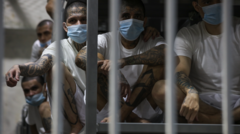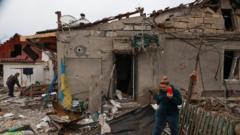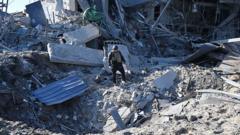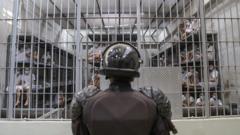With skepticism surrounding Putin's unilateral truce declaration, analysts explore both cautious optimism and the potential for diplomatic breakthroughs.
**Putin's Easter Truce: Hope for Peace or Mere Public Relations?**

**Putin's Easter Truce: Hope for Peace or Mere Public Relations?**
As Russia announces a short-term Easter ceasefire, the world questions its sincerity amidst continued conflict.
In a significant turn of events, President Vladimir Putin declared a unilateral Easter truce in Ukraine, lasting until midnight on Sunday. This announcement is seen through a lens of skepticism, particularly as Russia has intensified military operations recently, even while formal diplomatic negotiations are underway. The truce, which spans only 30 hours, contrasts starkly with last month's proposed 30-day ceasefire by the Trump administration, which Ukraine was willing to accept, but Russia rejected, presenting a long list of conditions instead.
Ukrainian President Volodymyr Zelensky responded to Putin's declaration with caution, stating on social media that the Russian military appears to be constructing a façade of ceasefire while continuing to engage in hostilities in certain regions. Conversely, the Russian defense ministry asserted that their troops maintained a strict adherence to the ceasefire and accused Ukraine of breaching the terms.
With this recent development, questions arise: Is the truce merely a PR tactic aimed at smoothing relations with the Trump administration? Some commentators suggest that this brief ceasefire may serve to alleviate pressures from Washington, especially with Trump's administration reportedly growing impatient regarding progress in the Ukrainian conflict.
However, others see a silver lining in the unexpected truce announcement, noting that it coincides with a period of heightened international negotiation efforts aimed at resolving the ongoing war. Important diplomatic meetings have taken place in recent weeks, with U.S. envoy Steve Witkoff engaging with Putin and participating in discussions alongside top officials from France and Ukraine.
The Kremlin's recent move raises the possibility that the Easter truce might pave the way for a more thorough peace accord, despite the immediate reality of continued skirmishes. Although skepticism remains prevalent regarding Putin's willingness to engage in meaningful negotiations, the dynamics behind the scenes are complex, and the potential for unexpected developments in diplomacy is ever-present. The outcome hinges significantly on the interplay of behind-the-scenes conversations and the willingness of all parties to pursue genuine compromise.




















